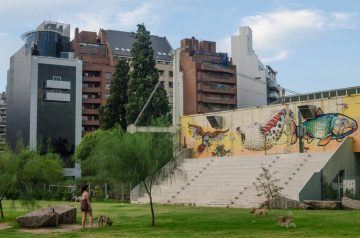
When did nature become a good for cities? When did city dwellers start imagining nature to be something they were missing? Today, urbanites’ moral associations with nature are so obvious and widely shared that a recent New Yorker cartoon of a couple at the dinner table was captioned: “Is this from the community garden? It tastes sanctimonious.” For better or worse, most of us are so steeped in this view of nature that it is hard to imagine how it could be otherwise. But it once was.
Many believe that nature became an ethical force in city life—a process Justin Farrell calls the “moralization of nature” for urban inhabitants—on account of 19th-century industrial cities. The lack of access to clean air, water, sunshine, and green space in crowded, polluted urban environments—in contrast to a real nature “out there”—transformed nature from a material into a moral good. These unnatural cities, the argument goes, forced people to see nature as not just something good, but something good for you: spiritually, emotionally, even physically.
Continue reading
I found this extremely interesting. H
No comments:
Post a Comment